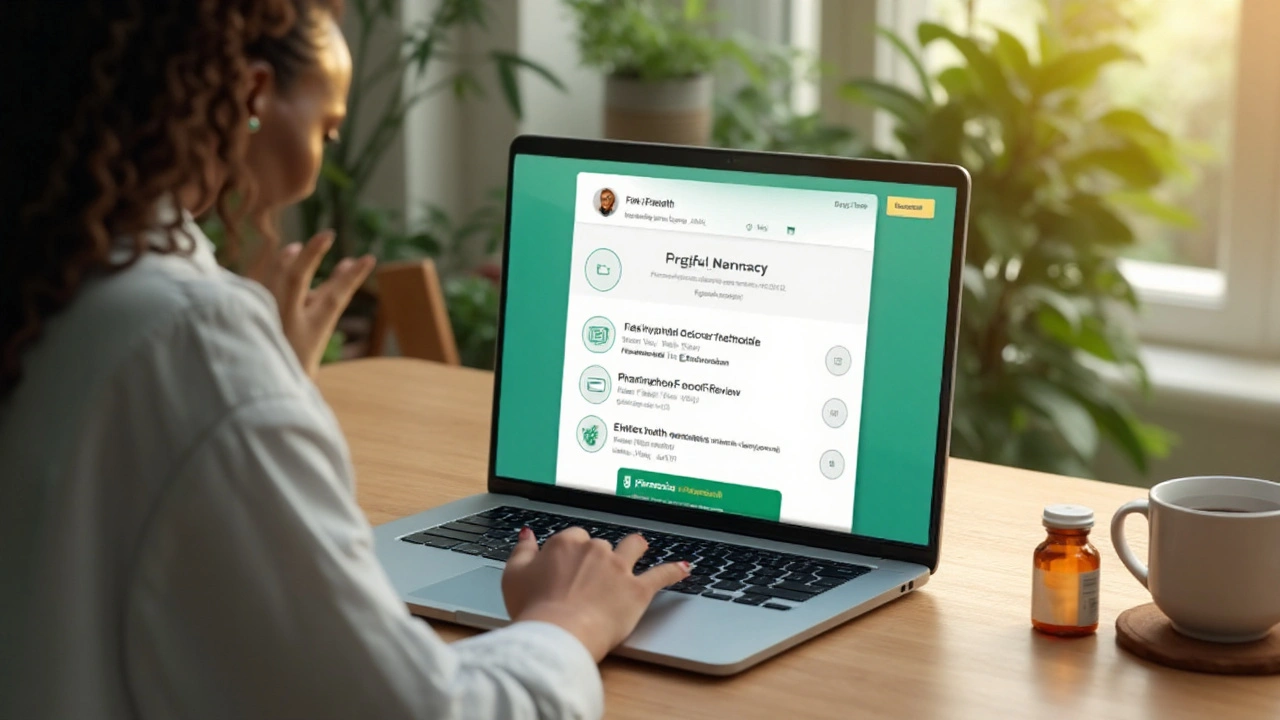Hydrochlorothiazide Prescription: What You Need to Know
If your doctor mentioned hydrochlorothiazide, you’re probably dealing with high blood pressure or fluid buildup. This pill is a thiazide diuretic – basically a water‑pusher that helps your kidneys get rid of excess salt and fluid. Less fluid means lower pressure on your heart and vessels, which can protect you from strokes and heart attacks.
How Hydrochlorothiazide Works
When you swallow a hydro‑chloro‑thiaz‑ide tablet, it travels to your kidneys and blocks a part of the tubule that reabsorbs sodium. Because sodium can’t be reclaimed, water follows it out of the body in your urine. The result is a lower blood volume, which pulls down your blood pressure. Most people feel the effect within a few days, but the full benefit can take a few weeks.
The drug is often combined with other blood‑pressure meds, like ACE inhibitors or ARBs, to give a stronger effect without upping the dose of each pill. If you’re on a combo pill, make sure you know each ingredient – sometimes side effects come from the partner drug, not just the diuretic.
Common Questions About Dosing and Side Effects
Typical adult doses range from 12.5 mg to 50 mg once a day. Your doctor will start low and adjust based on how your blood pressure reads and how you feel. Take the pill in the morning to avoid nighttime trips to the bathroom.
Most side effects are mild and go away as your body adjusts. You might notice a bit more urination, slight dizziness, or a dry mouth. Keep an eye on your electrolytes – low potassium is a common issue. Eating potassium‑rich foods like bananas or a small glass of orange juice can help, but ask your doctor if a supplement is better for you.
Serious reactions are rare but watch for severe muscle cramps, sudden weight loss, or dark urine. Those could signal dehydration or kidney problems, and you’d need to call your doctor right away.
Alcohol can boost the dizziness effect, so limit your drinks while you’re starting the medication. Also, avoid over‑the‑counter NSAIDs like ibuprofen unless your doctor says it’s safe – they can blunt the blood‑pressure‑lowering effect.
Regular follow‑up is key. Your doctor will likely check your blood pressure, weight, and blood chemistry after a month, then maybe every few months. If your numbers are good and you feel fine, you’ll stay on the same dose. If you’re not hitting target pressure, the doctor might tweak the dose or add another medicine.
Remember, staying active, cutting back on salty foods, and keeping a healthy weight boost the pill’s performance. The medication does the heavy lifting, but your lifestyle choices lock in the results.
Bottom line: hydro‑chlor‑othiazide is a solid first‑line tool for many people with hypertension. Take it as prescribed, monitor how you feel, and keep up with doctor visits. With the right plan, you’ll keep your pressure in check and feel better day by day.
How and Where to Buy Hydrochlorothiazide Online Safely (2025 Guide)
Clear, step-by-step guidance to buy Hydrochlorothiazide online legally in 2025: what you need, how to verify pharmacies, prices by region, and fast, safe ordering options.
Read more